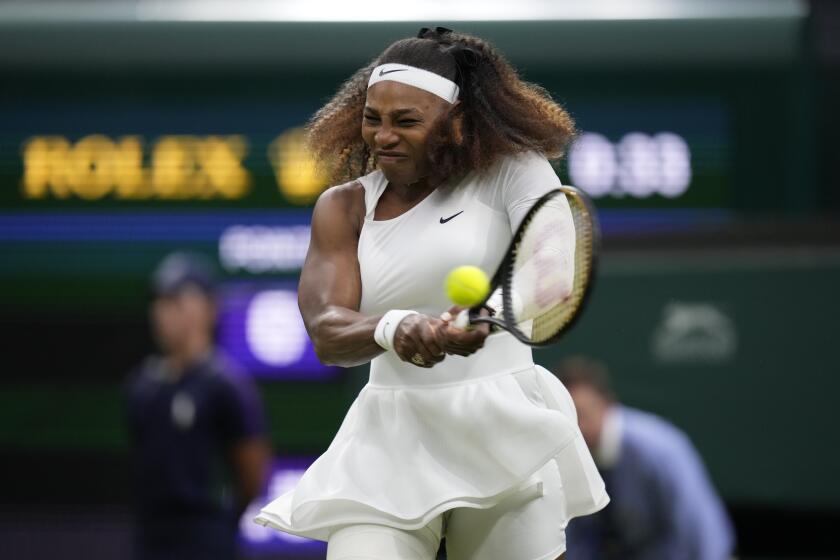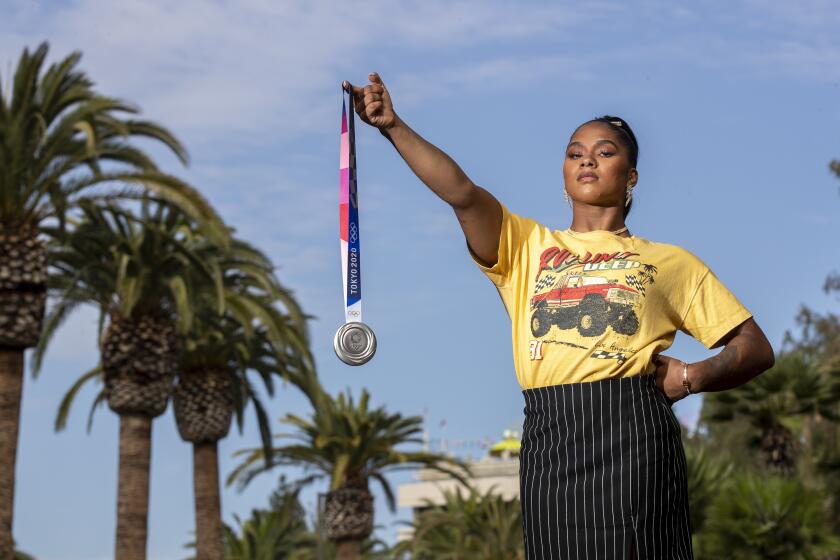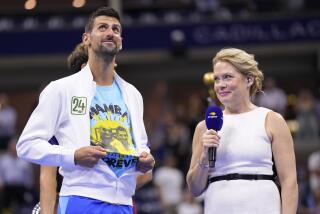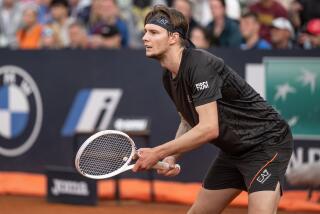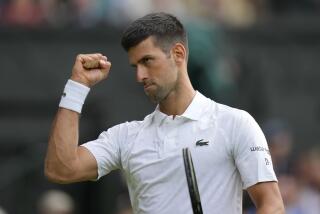U.S. Open to carry on despite new COVID-19 restrictions on fans
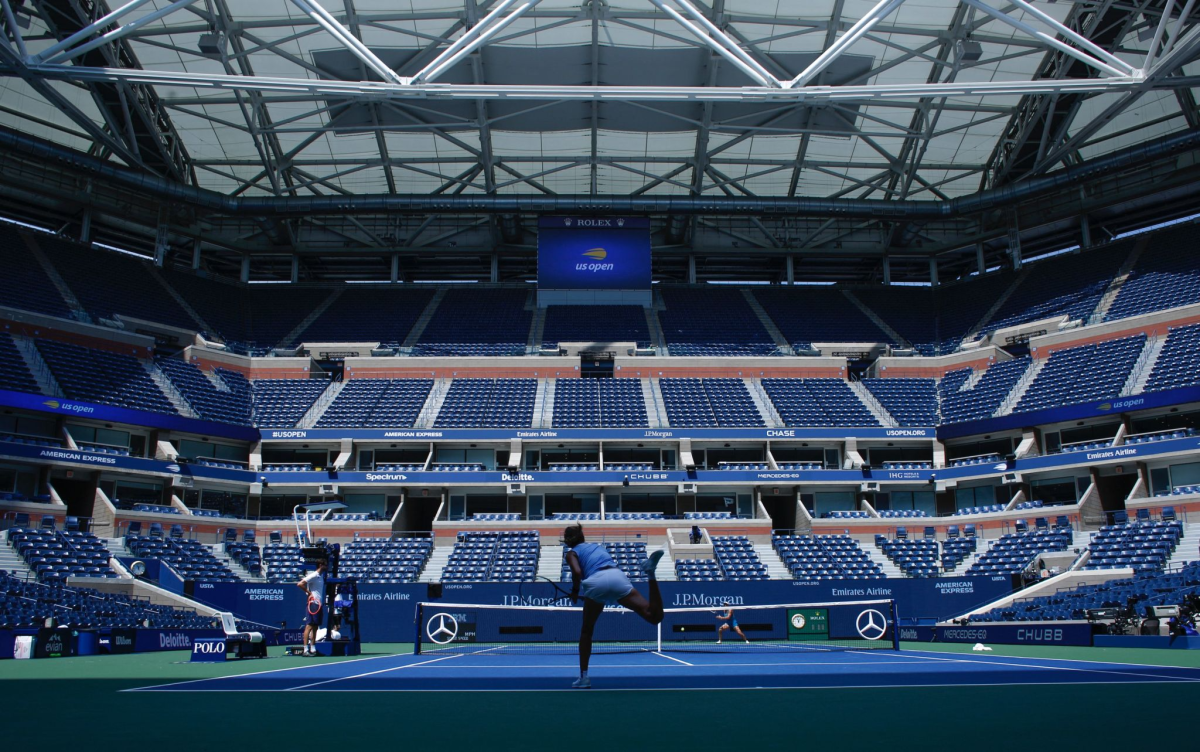
- Share via
A year after the loudest and lustiest of the four Grand Slam tennis tournaments was played amid eerie silence and empty seats, the U.S. Open will welcome fans back to Flushing Meadows — but only those who can prove they’ve had at least one vaccination against COVID-19.
The surging Delta variant has the potential to become a subplot of the two-week tournament, along with the injury-induced absences of luminaries Roger Federer, Rafael Nadal and Serena Williams. It could be as big a story as Novak Djokovic’s quest to become the first man to win 21 Grand Slam singles titles and the first man to win all four major singles titles in a calendar year since Rod Laver in 1969. Steffi Graf earned a Golden Slam by winning an Olympic gold medal and all four women’s Grand Slam singles titles in 1988.
On Friday, less than 72 hours before Monday’s opening matches, the U.S. Tennis Assn. said the office of New York City Mayor Bill de Blasio had mandated that spectators age 12 and older entering Arthur Ashe Stadium will have to show proof of vaccination. The USTA expanded that to include the entire grounds of the Billie Jean King National Tennis Center. Fans won’t be required to wear masks.
Serena Williams should already know she doesn’t have to chase a record to be considered the greatest in the game. She’s already there.
Vaccinations are not required for players to compete for the $57.5 million in prize money. Nor will players be sequestered in a suburban bubble, as they were a year ago. They will be housed in Manhattan and will be tested for COVID upon arrival and every four days after that. An athlete who tests positive will be taken out of the competition, said Stacey Allaster, the U.S. Open tournament director.
“I feel like that should be always a personal decision, whether you want to get vaccinated or not. So I’m supportive of that,” said Djokovic, who tested positive for the coronavirus in June 2020 after staging exhibitions that flouted COVID protocols. “Whether someone wants to get a vaccine or not, that’s completely up to them. I hope that it stays that way.”
No. 3 seed Stefanos Tsitsipas of Greece has said he won’t get vaccinated unless the men’s tour makes it mandatory. Dr. Brian Hainline, a member of the USTA’s medical advisory group and the chief medical officer of the NCAA, said Tsitsipas’ reasoning was typical of “emerging adults and our young adults.” Tsitsipas, a possible challenger to Djokovic’s dominance, is 23.
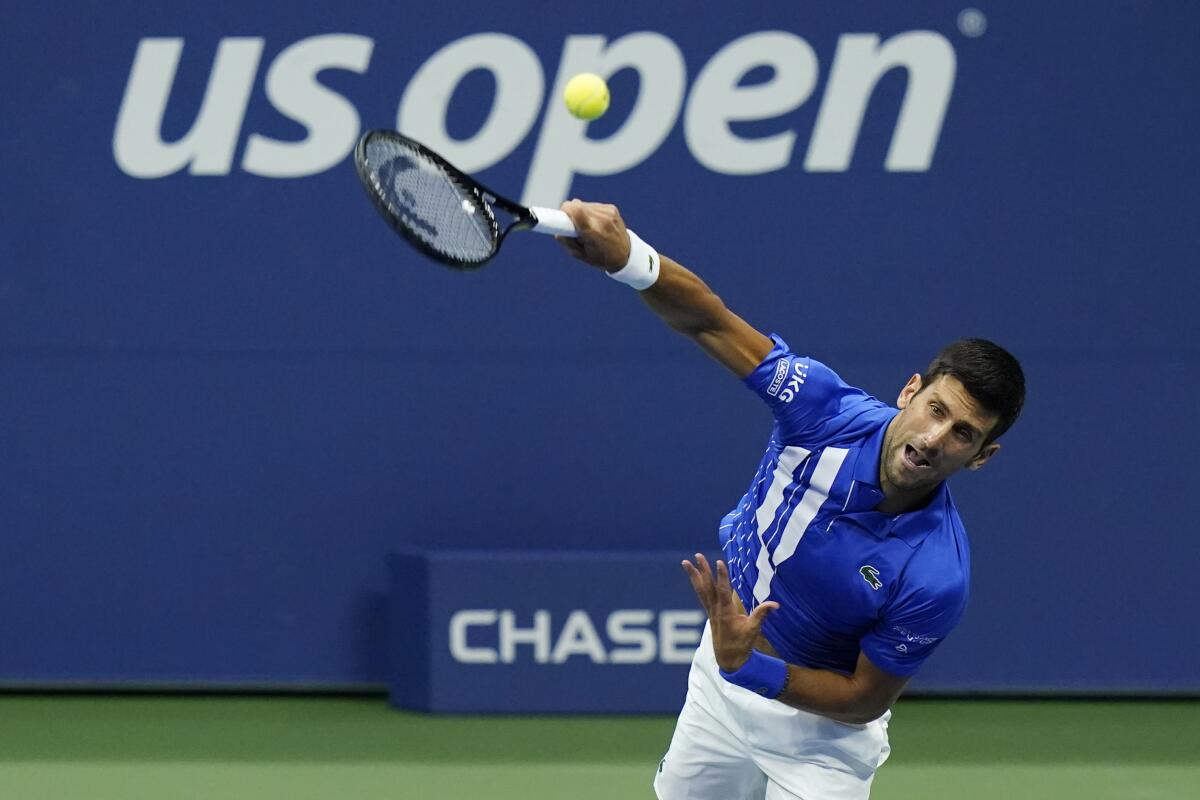
“They look at an individual risk profile of the vaccine versus having the disease itself. That has changed,” Hainline said, adding half the people hospitalized since the Delta variant became widespread are under 50.
Why go to full capacity of maskless, non-socially distanced fans while the variant is a significant concern? As always, follow the money. Mike Dowse, executive director of the USTA, said the organization lost $180 million last year because no tickets were sold to the U.S. Open. Recreational tennis participation rose during the pandemic, but the Open provides financial support for the USTA’s grassroots initiatives and other efforts. Another lost year would be devastating financially.
Djokovic’s pursuit of history is compelling above all. A year removed from being defaulted from the Open for swatting a ball that struck a lineswoman in the throat, he returns to New York to a field that lacks Federer (knee surgery), Nadal (foot injury) and defending champion Dominic Thiem (wrist injury). Djokovic said he sees Tsitsipas, No. 2 seed Daniil Medvedev of Russia and No. 4 seed and Olympic gold medalist Alexander Zverev of Germany as his main rivals.
Olympic silver medalist Jordan Chiles is chasing her Hollywood dreams. She’s driven to develop as an artist, win a gymnastics national championship at UCLA and appear in a Marvel movie.
“I’m very inspired to play my best tennis here,” Djokovic said. “I don’t want to say it’s now or never for me because I think I’m going to have more opportunities in my life to win Slams. I don’t know if I’m going to be having more opportunities to win calendar Slams. That’s why it’s a very unique opportunity. At the same time, I don’t need to put any additional pressure to what I already have, which is pretty big from my own self and from of course people around me.
“But I thrive under pressure, as well. I’ve done that many times in my career. Pressure is a privilege, it truly is. This is what you work for, day in, day out, all your life, to put yourself in a unique position to win Grand Slams and to make history.”
Patrick Mouratoglou, who coaches Tsitsipas, Williams and Coco Gauff, was impressed by Djokovic’s ability to shake off jitters and rally from two sets down to defeat Tsitsipas in the French Open final. “Whatever big matches he played this year I could feel a different level of nerves, but he’s such a champion he could recover from that and still find his way to win,” Mouratoglou said.
“It’s different to play now. Like, every Grand Slam is for history now, potentially. So this is a different level of pressure that he’s going to experience now, so we’ll see how he deals with it.”
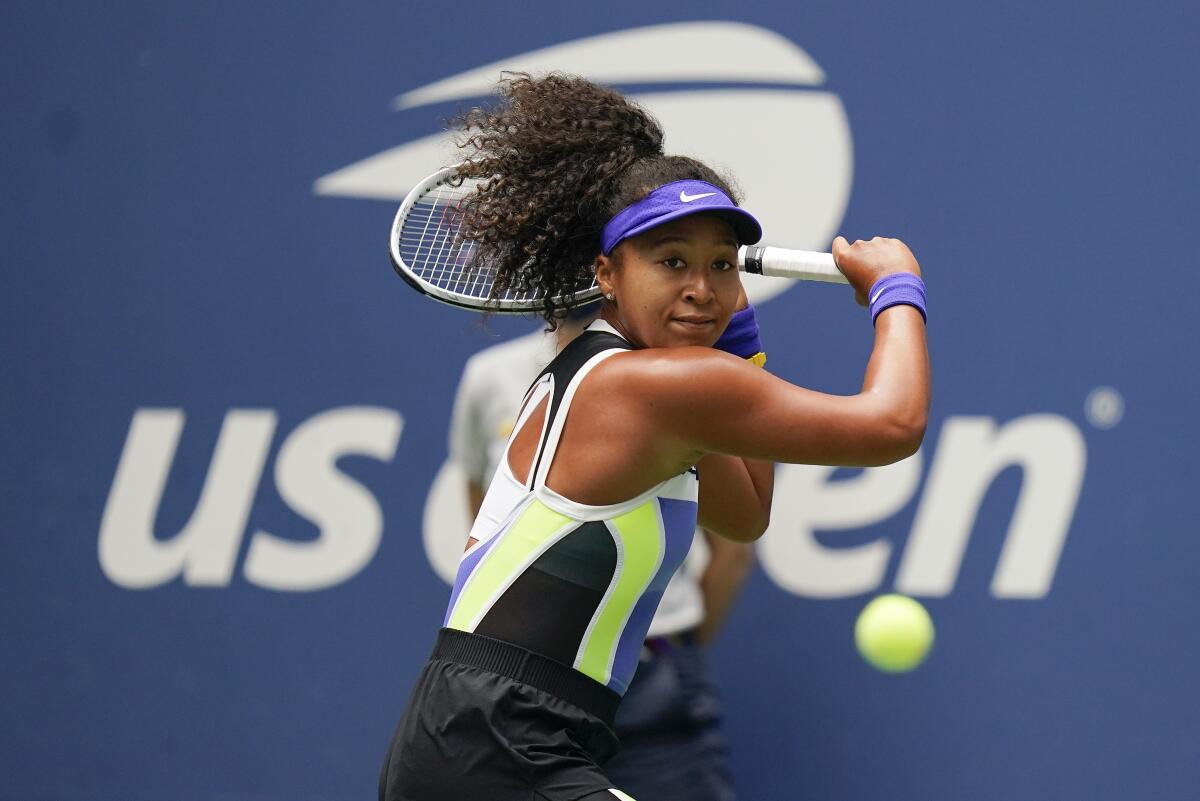
The women’s field is more level. There were no repeat winners in the first three Slams, won by Naomi Osaka (Australian Open), Barbora Krejcikova (French Open) and Ash Barty (Wimbledon). No. 1 seed Barty also won a recent hardcourt tournament in Cincinnati. Osaka, a two-time U.S. Open winner who lit the Tokyo Olympic cauldron, hasn’t played much since she pulled out of the French Open to safeguard her emotional well-being in the face of what she considered negative media questions, and she feels the loss of match play.
“I feel pretty confident with where I am right now. Of course I’m not, like, declaring that I’ll do amazing here,” she said. “For me, I’m the one-match-at-a-time like person. Yeah, hopefully it will work out in the end.”
Hopefully all will play out safely for everyone, leaving the focus on match results instead of COVID test results. “You don’t have someone like Serena or Roger every 10 years. It’s exceptional,” Mouratoglou said. “But to have more uncertainty and more suspense, it’s also something that we can appreciate.”
More to Read
Go beyond the scoreboard
Get the latest on L.A.'s teams in the daily Sports Report newsletter.
You may occasionally receive promotional content from the Los Angeles Times.

